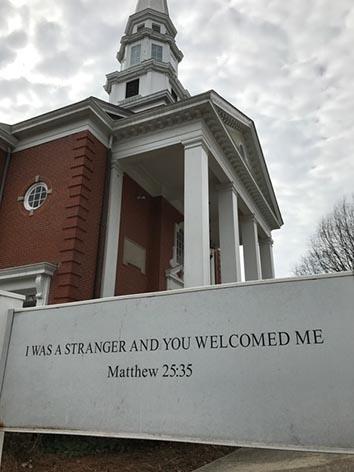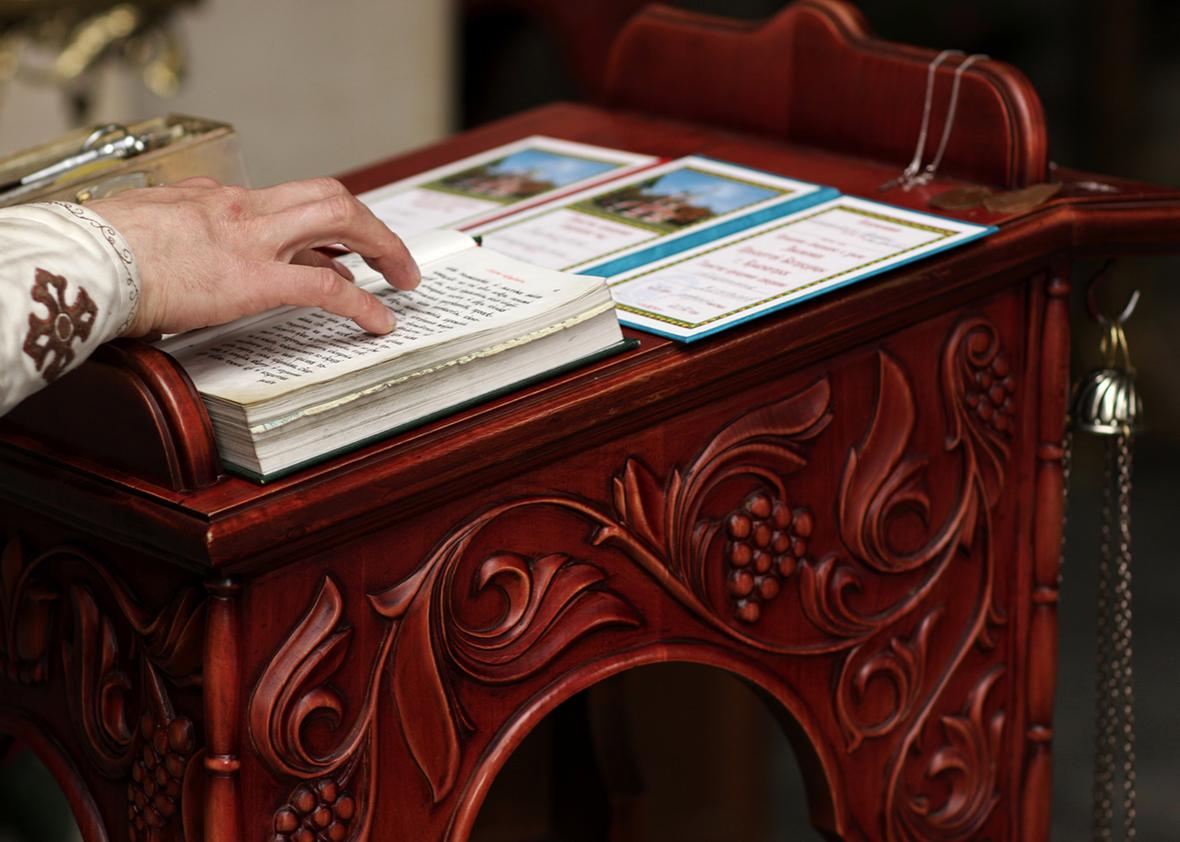Every week of national turmoil is followed by a Sunday when preachers have a job to do. This week, as I prepare for my first sermon of the Trump presidency, I’m thinking of Ralph.
Ralph is a parishioner of mine who died last year. Besides being a faithful, gracious, generous, and supportive man, he was one of the more conservative folks at St. Andrew’s, our progressive-leaning Greensboro, North Carolina, church.
We never spoke of politics. I simply knew from a comment here and grumble there that he wasn’t wild about the church’s overall direction. I loved and respected him for that. He wasn’t alone, but he wasn’t in the majority either. It was not my job to convert him but to be aware of his perspective and to listen to him.
Knowing that Ralph would be in church every Sunday (eighth pew on the pulpit side, beside a window) influenced how I preached. That’s not to say that I watered down my homilies because of him. I think instead that Ralph’s attendance imposed a certain discipline on me. If I was casting a vision of God’s justice that hinted that true faith was decided along liberal or conservative lines, then I risked cutting people off.
Long gone are the days when folk stay at your church because they’re supposed to. In the worst-case scenario, they stay only because they like the politics and the culture of the church. In the best case, they come to church because they experience God there. Preaching the issues of the day can be satisfying and even necessary, but given our polarized society, a pastor who only preaches current events can quickly burn through the capital he or she needs to keep the church from becoming an echo chamber.
A sermon that proclaims that the moral arc of the universe bends toward justice but over and around Ralph in pew No. 8 isn’t going to work in the long run. If we’re going to get there, we must get there together. That means that the work is harder.
This Sunday, most Christians will hear this from the Gospel of Matthew: You are the salt of the earth. But if the salt has lost its taste, what good is that? You are the light of the world. But if you conceal your light, what’s the point?
Some preachers will hear that passage as a call to action. Others might think more broadly about the gift of our faith and how we live it out. I begin many a Monday with one idea of how to interpret the readings, but as I move through the week, things inevitably change. Writing a sermon means paying attention to all that unfolds through those seven days. If I’m doing it right, ideas that seem fully formed early in the week will fade in time. New thoughts emerge that tend to be more nuanced and inclusive. Stronger words and statements may find their way back into the text by Thursday or Friday, but they are very rarely the ones that were in play on Monday.

St. Andrew’s Episcopal
Most weeks the hot buttons get edited out. I have learned that there are a whole host of words or thoughts that, once uttered, will be all that many people remember—even if they were peripheral to the main point. The mention of this president in particular evokes a strong emotive response for people across the political spectrum, and I haven’t yet figured out how to navigate that.
But this week the air is already charged with emotion. It would be foolish to pretend otherwise. What does it mean for the church to be the light of the world in challenging times? In the week after the ban on refugees, what can we say about the importance of welcoming the stranger? Can I make a bold statement about it that doesn’t diminish those who see it very differently?
And might there be any number of other things going on in people’s lives than the refugee ban, important though it may be? As preachers, we have a unique witness. The church remains one of the few places in a polarized America where people welcome rhetoric that challenges their assumptions and proclaims a different vision of the world. We still have that ability because of the relational nature of our work: A blogger won’t call you when you lose a parent, and a politician doesn’t greet you every Sunday. So while we have a job to do in the pulpit, we have to keep those channels open if our word is to have any authority.
We might be tempted to think of a sermon as a moment in which a designated holy person tells us everything we need to know. It doesn’t quite work like that in my tradition. A sermon is deeply rooted in study and prayer but also in the relationships that I have with my parishioners. A sermon is only one piece of the many-layered, lifelong process of building a community. Even the most challenging events can also serve as opportunities to strengthen that community, but that requires equal measures of courage and humility.
I’m still writing this Sunday’s sermon and probably will be right up until Saturday night. On Sunday I’ll keep an eye toward Ralph’s pew, and I’ll be thinking about Jesus’ words (also from the Gospel of Matthew) emblazoned on a sign in St. Andrew’s courtyard: “I was a stranger and you welcomed me.” These words give little direction on how to talk about the world of politics but certainly offer an entrée into how Christians are called to welcome the vulnerable among us. If my church felt strongly enough to make this verse part of the architecture, then it’s probably a good place to start this Sunday.
